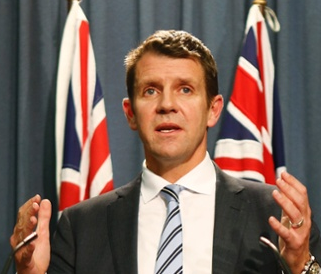
Power Privatisation in NSW: The Pros and Cons
Arguments For -
 Statistics:
Statistics:Arguments Against -
 Jobs:
Jobs:
 Statistics:
Statistics: Jobs:
Jobs:
Not sure about NSW but here in Far North Qld the ERGON monopoly appears to hold us to ransom, with what I believe is more that 217% rise you have spoken about. And our govt - who it appears owns ERGON - want to sell it off. Well, we the people are fighting back, we are getting solar cells, when we can afford them, then more when we can afford them. Then the next move is to get batteries that can store the electricity we make for ourselves. When that happens we will turn off ERGON! ERGON will begin to lose customers who will never come back. So why not sell it off, the costs to the owner of ERGON ( being our government) will be horrendous. May as well not be owned by our government, using our money.
Nothing demonstrates performance better than performance: History and evidence of asset sales in Victoria, New Zealand, South Australia, etc., all tell tales of the profit motive in private hands leads to higher prices and job losses, usually in maintenance. Poor maintenance has been linked to the bushfires and coal-fires and black-outs, each costing Billions in lost productivity – all substantially borne by the tax-payer (government). So, we pay over the long-term: higher prices, higher fares, ongoing repairs, compensation, etc. Europe retains ownership, and the service is fine; why do we have to copy America?
After all the public assets are sold and there is nothing left to run, what will governments run. Their own super funds and bank accounts.? We the public of Australia own everything the a government runs, but they seem to forget this fact. I am still amazed at how the government sold Telecom and the Commonwealth bank and others to the public who already owned them. Recently the Port of Newcastle was leased to another country. A Port worth billions to the Australian. Economy has been given away for 99years to someone else. Just don't sell any more assets , pull your fingers out and get to work for a change. We make better stuff and provide better services. Than most other countries, its just the money. So what! its only money..Think of peoples lives. The people of Australia want a fair deal do not sell anymore assets. I was under the impression that these elected officers were our servants, to run the services to benefit the public. The services they run were. To run at a break even account after all bills and wages etc are paid. What is this mad obsession with making huge profits. Get back to basics.
Mr braid says he would sell off if he gets back but what would happen if he got back with less than 50per cent of the vote which is possible. Would he still go ahead as he does not have a true mandate. What do you say mr braid .....
We would only be losing half of the current revenue from poles and wires because the Govt is leasing only half..we will still have the other half income. Also NSW will have 3 levels in place to ensure prices don"t rise which I understand was not the case for those other states mentioned. Lastly the $20 billion upfront rental will allow new infradtructure to be built, which NSW will also own. This Govt turned NSW from the slowest growing economy in Australia and got us to number 1 in one term of Govt...that's enough for me to let them continue.
This seems to be written from a totally Labor perspective as it is not actually a sell off. From what I have read it is a long term lease of around half the poles. I'd rather see some unbiased information.
No. I think it is appalling to keep selling off our assets. In every case that I know of privatisation has ended costing the people much more as these corporations usually seek only to line their own pockets. Jobs get cut to the bone
LABOUR WILL DO IT IF AND WHEN THEY WIN AN ELECTION AND THEN WASTE THE MONEY . AT LEAST THIS GOV WILL SPEND ON ASSETS TO HELP ALL PARTIES PETER NSW
sell then to benefit our kids
The leasing of 49% of ‘Poles & Wires’ will as a minimum exclude the Union inflated cost scourge that has festered in this part of power delivery in this NSW. If this sector is worth protecting, the ACTU controlled entity (IFM) should be encouraged to invest in ‘Pole and Wires’ as they have done with the leasing of NSW Port Assets in 2013. Worth considering if anyone cares to research that transaction.